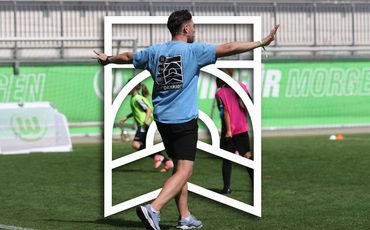What Competition Really Means for Kids in Sport
The role of competition in children’s sport has sparked debate for decades. Should it be included at all? Does it help or hinder development? At ICOACHKIDS, our stance is clear: competition isn’t the problem—how we present, organise, and manage it is what truly matters.
Our 10th Golden Principle says it best: “Use competition in a developmental way.” When done right, competition can be a powerful tool for growth, resilience, and enjoyment.
Why Competition Matters
For many children, sport is their first experience of competition—striving for a goal, dealing with success and failure, and learning to bounce back. These are life skills they’ll need well beyond the pitch or court.
But to unlock these benefits, we must rethink how we define and deliver competition.
Presenting Competition the Right Way
David Shields and Brenda Bredemeier, in their book True Competition, remind us of the original meaning of the word “compete,” derived from the Latin competere—“to strive with.” This suggests that competition was never meant to be about defeating others, but about pushing each other to be better.
True Competition = Partnership, Not War
When we frame competition as a shared journey of improvement, children gain far more than just a scoreline. Research shows that a cooperative, mastery-based competitive climate leads to:
- Greater enjoyment
- Higher self-esteem
- Increased confidence
- Long-term participation
- Stronger teamwork and resilience
In contrast, a performance-based climate—where winning is everything and opponents are enemies—can lead to burnout, low self-worth, and dropout from sport.
Organising Competition for Positive Outcomes
To ensure competition supports development, coaches and organisers should:
Make it Age-Appropriate
Tailor formats to suit children’s developmental stages. For example, in Belgium, under-7s play informal 2v2 games at festivals, mixing with kids from other clubs—fun, inclusive, and competitive in the best sense.
Lead by Example
Coaches and adults must model respectful, supportive behaviour and ensure all children get meaningful playing time.
Match Similar Abilities
Fair contests between evenly matched players create the most rewarding experiences. When mismatches occur, support and patience are key.
Engage Parents
Educate parents about the value of True Competition so they can reinforce positive messages before, during, and after games.
Final Thoughts
Children don’t need to “go all out” at age six to learn how to handle pressure. That will come naturally as they grow. What they need now is a safe, supportive environment where competition is about doing their best, not being the best.
Let’s reframe competition as a tool for development—not domination. Because when kids compete to grow, everyone wins.
Watch the full video below
Comments
Related Pages


